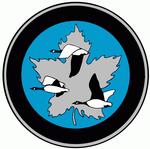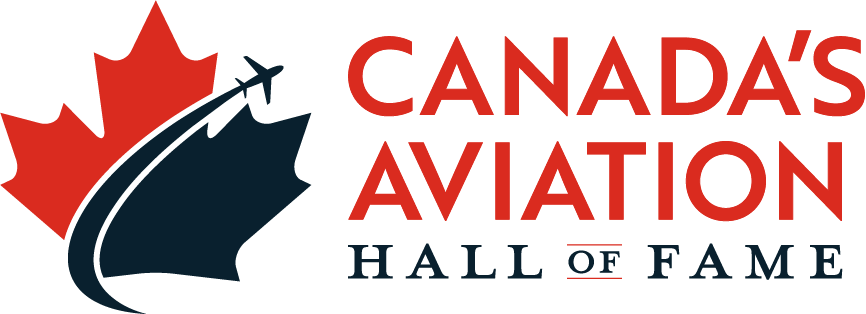Canadian Aeronautics and Space Institute (CASI)

"For 50 years, the Canadian Aeronautics and Space Institute (CASi) has made outstanding contributions to the advancement of the art, science, engineering, and applications of aviation and aerospace in Canada."
The Canadian Aeronautics and Space Institute (CASI) is a non-profit, professional, scientific and technical organization devoted to the advancement of the art, science and engineering of aeronautics, astronautics and associated technologies in Canada.
It provides a focus for communications and networking among the aeronautics and space community in Canada, and assists members in developing skills, exchanging information, and sharing talents in their areas of interest. It promotes Canadian competence and international competitiveness in aeronautics and space and its applications, and fosters national pride and international esteem for Canada's accomplishments in these areas.
The origin of CASI dates back to 1954 when the Montreal based Institute of Aircraft Technicians, the Ottawa Aeronautical Society, and the Canadian sections of the U.S. Institute of Aeronautical Sciences amalgamated to form the Canadian Aeronautical Institute (CAI). In 1962 the Canadian Astronautical Society in Toronto and the Montreal based Astronautical Society of Canada merged with the CAI to become the Canadian Aeronautics and Space Institute.
The Institute consists of 15 Branches that serve about 1,600 members in major cities across Canada, some hosted by universities and colleges. Sections cater to special interest groups, such as Aerodynamics, Aircraft Design and Development, Astronautics, Flight Mechanics and Operations, Propulsion, Structure and Materials. Constituent Societies serve members specializing in technologies such as Air Cushion Technology, Navigation, and Remote Sensing.
CASI holds conferences, workshops and symposia each year which draw delegates from around the world. It has an extensive publications program, publishing two scientific journals that focus on the work and accomplishments of Canadian scientists and researchers. CASI's official journal, Canadian Aeronautics and Space Journal, has been published quarterly since 1954. The Canadian Journal of Remote Sensing is the official journal of the Canadian Remote Sensing Society. CASI also publishes proceedings of its conferences and symposia, and keeps its members informed of Institute activities with the CASI Log.
Each year CASI seeks to honour outstanding achievement in Canadian aviation and aerospace by conferring a variety of awards and distinctions. One of these is the Trans-Canada (McKee) Trophy, which was established in 1927 by J. Dalzell McKee, and has been administered by CASI since 1971. It is the oldest and most prestigious award in Canadian aviation. Indeed, the original inductees to Canada's Aviation Hall of Fame in 1974 included all the recipients of this award to that date.
CASI also presents other major awards annually. The McCurdy Award was first presented in 1954 to commemorate the many engineering and other contributions made by John A.D. McCurdy. He flew the Silver Dart at Baddeck, Nova Scotia in 1909 during the first stages of the development of an aviation industry in North America. It is presented for outstanding achievement in the science and creative aspects of engineering relating to aeronautics and space research.
The C.D. Howe Award was introduced in 1966 in honour of a long-time Member of Parliament and Minister of Transport, The Right Honourable C.D. Howe. The award is presented for achievements in the fields of planning and policy making, and overall leadership in Canadian aeronautics and space activities.
The Romeo Vachon Award was established in 1968 by CASI in memory of one of Canada's outstanding bush pilots, Joseph Pierre Romeo Vachon. It is presented for excellence in the display of initiative, ingenuity, and practical skills in the solution of a particular problem or series of problems in aeronautics and space activities in Canada.
The Alouette Award was introduced in 1995 to recognize an outstanding contribution to advancement in Canadian space technology, application, science or engineering, and may be awarded to an individual or a group. The contribution must be recognized as a Canadian-led space endeavour or as a significant Canadian contribution to an international program.
The Council further recognizes the contributions of exceptional individuals by election to Fellow of CASI, as well as the appointment of Honourary Fellows.
The Belt of Orion for Excellence was bestowed upon the Canadian Aeronautics and Space Institute in 2004 at a ceremony held in Mississauga, Ontario.
The list of those elected to Fellow of CASI includes the following Members of Canada’s Aviation Hal of Fame: Paul Dilworth, James Floyd, Robert Fowler, Keith Greenaway, William Heaslip, Fred Hotson, Dick Richmond and Donald Rogers.
